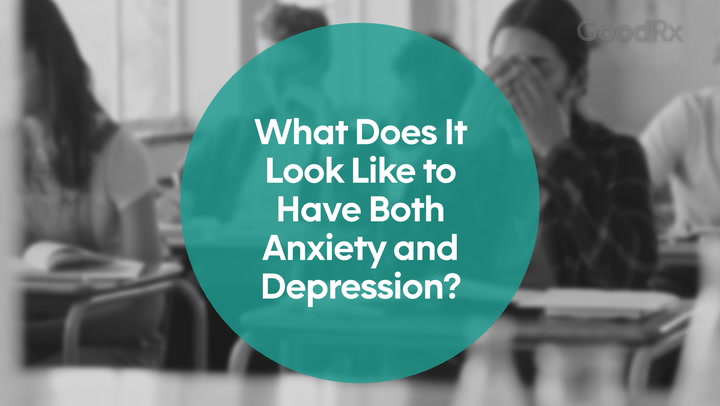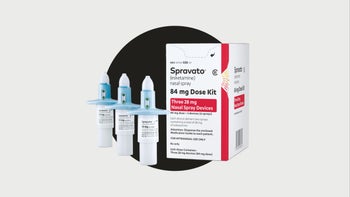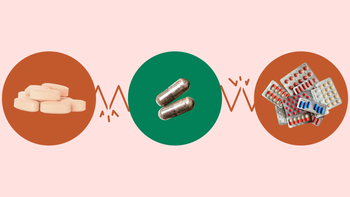
What Mental Health Services Does Medicare Cover?
Key takeaways:
Medicare is a federal health insurance program for people 65 or older, younger people with disabilities, and those with end-stage renal disease.
Medicare Part A and Part B (original Medicare) cover inpatient and outpatient mental health services. You need to purchase a Medicare prescription drug plan (Part D) for prescription drug coverage.
A supplemental Medicare plan can help cover out-of-pocket mental health care costs not covered by original Medicare.
Medicare is a federal health insurance program. It’s for those who are 65 or older, younger people with disabilities, or those with end-stage renal disease.
Medicare covers hospitalization, labs, diagnostics, medical supplies, surgeries, and prescription drugs. The program also covers mental health services. These services are meant to diagnose and treat mental health disorders.
More than 20% of adults over the age of 60 suffer from a mental or neurological disorder. This can lead to chronic health problems like heart disease, stroke, and diabetes.
Below, we break down how Medicare works for mental health services and review which services may qualify.
How does Medicare work for therapy?
Medicare covers many forms of therapy, including psychotherapy. This is also referred to as talk therapy. Studies show that psychotherapy tends to be beneficial to about 75% of the people who pursue it to address mental health challenges.
Medicare also helps cover hospitalization at a general or psychiatric hospital if you are admitted for inpatient care. Medicare limits the number of days of inpatient psychiatric hospital services covered during your lifetime.
Your mental health therapy and other services typically are not free under Medicare. You may get free mental health screenings, but you typically have to pay 20% of the Medicare-approved amount for the majority of services. Your total out-of-pocket expenses will depend on your deductible, coinsurance, provider fees, and location where you receive services.
Search and compare options
Does Medicare cover inpatient and outpatient mental health services?
Original Medicare consists of Medicare Part A (hospital insurance) and Part B (medical insurance). You will have access to inpatient and outpatient mental health services under Medicare Part A and Part B. Both may have deductibles and coinsurance.
Medicare Part A provides for inpatient services. These are for hospitals and psychiatric facilities.
You get coverage for the following:
Medications
Labs
Meals
Nursing care
Room
Medical supplies
Medicare Part B covers individual and group psychotherapy. You will also receive outpatient mental health services, which include:
Free annual depression screening (Must take place in a doctor’s office or primary care clinic)
Free annual wellness and “Welcome to Medicare” visits, which help identify risk factors for depression and other mental illnesses
Labs
Medication management
Partial hospitalization (No overnight stay required)
Testing and psychiatric evaluation
Treatment for substance abuse
Medicare does not provide coverage for these benefits and services:
Private nurse
Private room
Toothpaste, razors, and other personal items
TV or phone for your room
Read more like this
Explore these related articles, suggested for readers like you.
How much does Medicare cover for therapy?
The typical monthly premium for Medicare Part B is $170.10 for 2022. It could be more than that if your income in 2020 exceeds the thresholds. There is also an annual deductible of $233. After you pay your deductible, you may have a coinsurance of 20%. The coinsurance is calculated using the Medicare-approved amount.
For example, suppose you have a $1,000 bill for mental health therapy services.
You will pay the $233 annual deductible. This is what you pay before Medicare covers any qualified expenses for therapy.
Then, you will pay 20% of $767 ($153.40) for coinsurance. Coinsurance represents your share of health care costs you split with your insurer until the end of the plan year. You pay your coinsurance after you’ve met your annual deductible.
Your total out-of-pocket expenses will be $386.40 ($233 + $153.40). Traditional Medicare does not have any limits on out-of-pocket expenses.
How does Medicare’s mental health coverage vary across different plans?
This table shows mental health coverage for different parts of Medicare:
| Type of plan | Medicare coverage |
|---|---|
| Medicare Part A (hospital insurance) | A stay at a general hospital or psychiatric facility. Part A will only cover inpatient psychiatric hospital costs for mental health disorders up to 190 days. This is the lifetime limit. |
| Medicare Part B (medical insurance) | Outpatient services for therapy and other psychiatric treatments. Mental health visits with a clinical psychologist, clinical nurse specialist, psychiatrist, and other professionals are covered, as long as the provider accepts the assignment. |
| Medicare Advantage (Part C) | These plans are an alternative to original Medicare and are sold by private insurers. They typically offer the same mental health benefits as Medicare Part A, Part B, and Part D. Some plans may come with additional benefits, such as dental and vision. Unlike original Medicare, there is an annual out-of-pocket limit. |
| Medicare Part D (prescription drug coverage) | Prescription drugs for mental illness. Medicare plans don’t cover all drugs, but they typically cover anticonvulsant, antidepressant, and antipsychotic medications. |
| Medicare Supplement plans (Medigap) | A policy sold by private insurance companies to help pay for out-of-pocket mental healthcare costs — such as deductibles, copays, and coinsurance costs — after Medicare Part A and Part B pay their part. |
Source: Medicare.gov
What are Medicare’s requirements for receiving mental health services?
To qualify for mental health services, Medicare requires that the healthcare provider be one of the following:
Certified nurse-midwife
Clinical nurse specialist
Clinical social worker
Independently practicing psychologist
Medical doctor
Nurse practitioner
Physician assistant
Before you make an appointment with a mental health provider, ask if they accept the assignment. This means Medicare can pay them for medical services. You will usually only pay the deductible and coinsurance. Your healthcare provider will submit the claim to Medicare to receive the remaining amount of money owed for services. You do not need a letter for authorization
If the doctor or mental health provider does not accept assignment, you will have to pay for the total cost of your services.
Your healthcare provider usually performs services outside of a hospital. This includes their office, community mental health center, and a hospital's outpatient department.
Medicare Part B provides benefits for mental health disorders like depression or anxiety. Here are examples of procedures and approaches:
However, Medicare does not provide benefits for the following:
Adult day health programs
Biofeedback training
Meals
Mobile apps
Marriage or pastoral counseling
Transportation
How does Medicare work for mental health medications?
Medicare Part A and Part B do not cover prescription drugs for mental health. You will need to explore other options for prescription drug coverage.
The two plans for prescription drugs include:
Medicare Part D: This provides coverage for prescription drugs at a pharmacy. Your Medicare drug plan should specify which drugs are covered and the costs. This is known as a formulary. Before purchasing Medicare Part D, make sure the drugs you need are on the list.
Medicare Advantage: This is a plan from a private insurer. It combines Medicare Part A, Part B, and Part D. These plans usually have limited networks for healthcare providers.
Prescription drug coverage will come with monthly premiums, annual deductibles, and copayments or coinsurance.
Medicare plans cover drugs like:
You can buy both Medicare Part D and Medicare Advantage plans. But there is an exception if the Medicare Advantage plan is part of a health maintenance organization (HMO) or preferred provider organization (PPO).
Some of the factors to consider for selecting a Medicare Advantage plan include:
The premiums, copays, and coinsurance, which can vary
The healthcare providers in the network
The coverage for services and medications
You can shop for Medicare Part D and Advantage plans at Medicare.gov. You’ll be able to compare plans, costs, and benefits to help you determine the best plan for your needs.
If you have Medicare and need mental health services, what can you expect to pay out of pocket?
Medicare doesn’t cover 100% of the costs for mental health services. You will typically have to pay a monthly premium, annual deductible, and coinsurance. Your payment will all depend on the services you need. Medicare Part A covers hospital insurance, and Medicare Part B provides medical insurance for mental health services.
There are usually no monthly premiums for Medicare Part A. The reason is that most people work enough hours during their lifetime to qualify for premium-free Part A. This is 40 quarters — or 10 years — for either you or your spouse.
Medicare Part A has a deductible of $1,556 for 2022. This is for the admission to a hospital or psychiatric facility for each benefit period. A supplemental Medicare plan will cover part or all of the deductible.
Here’s how the coinsurance works for Medicare Part A:
| Days in the hospital or psychiatric facility | Your Medicare Part A coinsurance payment for each benefit period |
|---|---|
| First 60 days | None required. |
| 61-90 days | $389 per day. |
| Over 90 days | $778 per day for up to 60 days. This is called the lifetime reserve. Medicare gives you a total of 60 reserve days during your lifetime. You are responsible for paying 100% of your costs after you’ve used your lifetime reserve days. |
Source: Medicare.gov
For example, suppose you spend 63 days in a psychiatric facility. You will pay the $1,556 deductible and $1,167 for 3 days of coinsurance. The total will be $2,723.
If you need psychotherapy and other mental health services, you’ll need to review the costs of Medicare Part B.
Can a supplemental Medicare plan provide coverage for mental health?
A supplemental Medicare or Medigap plan is private insurance. You pay a monthly premium, and the policy covers one person. You still have to pay premiums on Medicare Part A and Part B.
Medigap plans are for the gaps in coverage for Medicare. These Medigap policies may include Plan A, B, C, D, F, G, K, L, M, or N. A Medigap plan will pay for all or part of the deductible, copays, and coinsurance for Medicare Part A and Part B. This includes coverage for qualified mental health services. You may want to seek the help of an insurance agent or financial planner to help you pick the best plan for you.
The bottom line
Medicare recognizes the importance of treating mental illness. Medicare Part A pays for hospital stays, and Part B is for therapy. You can also use Medigap to pay for all or a part of the deductibles, copays, and coinsurance. Then, there is Medicare Part D for prescription drugs.
Before seeking the help of a mental healthcare provider, make sure the person has accepted the assignment with Medicare. If not, you will have to pay for the services.
Why trust our experts?


References
American Psychological Association. (2008). Clinical psychology.
American Psychological Association. (2022). Understanding psychotherapy and how it works.
American Psychiatric Association. (n.d.). What is psychiatry?
American Psychiatric Association. (2019). What is psychotherapy?
Centers for Medicare & Medicaid Services. (2020). Medicare & your mental health benefits.
CMS.gov. (n.d.). Biofeedback therapy. U.S. Centers for Medicare and Medicaid.
CMS.gov. (n.d.). Chemical aversion therapy for treatment of alcoholism. U.S. Centers for Medicare and Medicaid.
CMS.gov. (n.d.). Hemodialysis for treatment of schizophrenia. U.S. Centers for Medicare and Medicaid.
CMS.gov. (n.d.). Multiple electroconvulsive therapy (MECT). U.S. Centers for Medicare and Medicaid.
Coleman, K. A. (2020). Medicare drug & health plan contract administration group. U.S. Centers for Medicare and Medicaid.
Healthcare.gov. (n.d.). Coinsurance. U.S. Centers for Medicare and Medicaid.
Healthcare.gov. (n.d.). Copayment. U.S. Centers for Medicare and Medicaid.
Medicare.gov. (n.d.). Drug coverage (part d). U.S. Centers for Medicare and Medicaid.
Medicare.gov. (n.d.). Find a Medicare plan. U.S. Centers for Medicare and Medicaid.
Medicare.gov. (n.d.). How do Medicare Advantage plans work? U.S. Centers for Medicare and Medicaid.
Medicare.gov. (n.d.). How to compare Medigap policies. U.S. Centers for Medicare and Medicaid.
Medicare.gov. (n.d.). Inpatient hospital care. U.S. Centers for Medicare and Medicaid.
Medicare.gov. (n.d.). Lower costs with assignment. U.S. Centers for Medicare and Medicaid.
Medicare.gov. (n.d.). Mental health care (inpatient). U.S. Centers for Medicare and Medicaid.
Medicare.gov. (n.d.). Mental health care (outpatient). U.S. Centers for Medicare and Medicaid.
Medicare.gov. (n.d.). Mental health care (partial hospitalization). U.S. Centers for Medicare and Medicaid.
Medicare.gov. (n.d.). What's Medicare? U.S. Centers for Medicare and Medicaid.
Medicare.gov. (n.d.). What's Medicare supplement insurance (Medigap)? U.S. Centers for Medicare and Medicaid.
Medicare.gov. (2022). Medicare costs at a glance. U.S. Centers for Medicare and Medicaid.
Medicare Learning Network. (2022). Behavioral health integration services. U.S. Centers for Medicare and Medicaid.
Medicare Learning Network. (2022). Medicare mental health. U.S. Centers for Medicare and Medicaid.
National Institute of Mental Health. (2018). Older adults and mental health.
World Health Organization. (2017). Mental health of older adults.
For additional resources or to connect with mental health services in your area, call SAMHSA’s National Helpline at 1-800-662-4357. For immediate assistance, call the National Suicide Prevention Lifeline at 988, or text HOME to 741-741 to reach the Crisis Text Line.



























